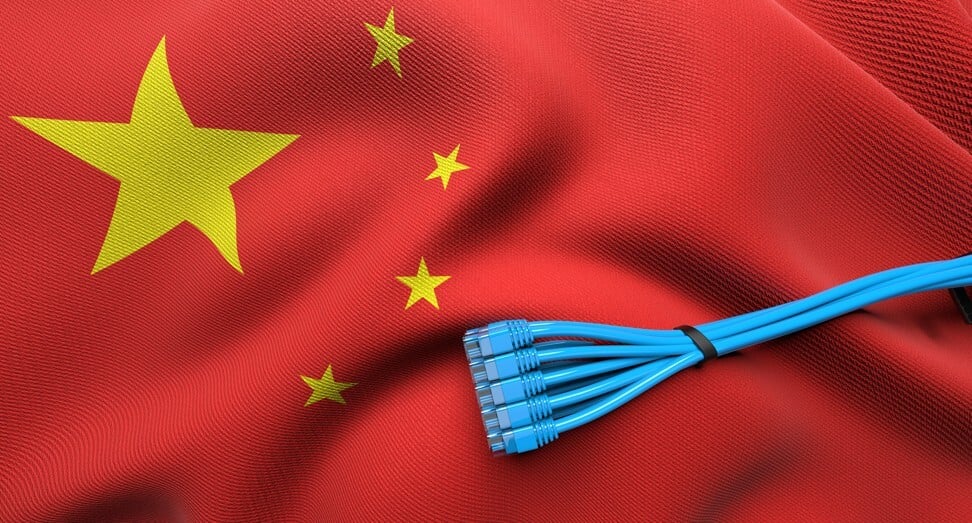
China’s LGBT communities fear new internet rules will silence voices
- New rules force self-publishers, including bloggers and social media users, to apply for an official licence to publish current affairs content
- The rules have raised concerns within the LGBT community that organising anything on behalf of LGBT rights could violate them
China’s LGBT communities are reeling over new internet self-publishing rules they claim will remove the last vestiges of free expression they have.
The new rules apply to everyone in China and force self-publishers to apply for an official licence to publish current affairs content.
The tough new restrictions on self-publishing, introduced by the Cyberspace Administration of China last year and given more details in late January, particularly target “we-media”, a phrase that refers to bloggers who have built up sizeable followings on social media platforms.
But for the LGBT communities that already feel marginalised, the rules are even more concerning.
“We are confused and worried about what the new rules will bring,” said Yang Yi of the China Rainbow Media Awards, a non-profit promoting LGBT visibility.
“Would sharing personal stories of school bullying, work discriminations and forced conversion therapy count as publishing news?” he asked.

WeChat, the largest social media platform in China, issued a statement that read: “We suggest you stop publishing content relating to politics, economy, military, foreign relations, major breaking news events and others, if you don’t have related licences.”
Homosexuality was decriminalised in China in 1997, but the government discourages public discussion of LGBT issues.
The LGBT community has managed to use legal avenues like lawsuits to push for legislative breakthroughs, including successfully forcing the Chinese government to consider legalising same-sex marriage on numerous occasions.
However, while Chinese laws are yet to properly recognise or protect same-sex couples through marriage or de facto relationships, these initiatives have shone a light on the issues faced by the LGBT community.
Second coronavirus control worker in two weeks killed in China
Now, the new rules have raised concerns within the community that organising anything on behalf of LGBT rights could violate the new rules.
“Would encouraging people to reach out to legislators and submit proposals that legalise same-sex marriage count as political commentary?” Yang asked.
“For our community, the best way to outreach is through these online platforms. If we lose [WeChat], we lose the ability to connect and advocate for the community. There’s no way out of this.”
Yang said some LGBT community members were already speaking about the need to self-censor online commentary so that they didn’t break the rules and lose access to their large online followings.
The space for speech and expression is shrinking in China. People can feel the squeeze
Chen Xiang, cooperation manager at Parents, Families and Friends of Lesbians and Gays of China (PFLAG), an LGBT rights advocacy group, said he believes “the new rules will reduce the number of online commentaries and information available”.
Chen said he didn’t believe the new rules would directly affect PFLAG because the group promotes family and personal stories rather than news, but he worried minority voices could be silenced by the new rules, resulting in a homogenous society that only catered to mainstream views.
“If fewer people can comment on public events online, we will gradually lose a place to see things from a different perspective,” Chen said. “We might be back in a time when we can only read the things officials want us to read.
“When I was growing up in the ’80s, our family only had access to Xinwen Lianbo [a daily news programme from the state broadcaster CCTV] – we believed whatever [it] broadcasted,” he added. “But once I stepped outside, I suddenly discovered a world that was so different from what the TV told me.”

Liu Xuefei, a lawyer specialising in commercial and family law, said she believes the new rules will change the nature of the online publishing community.
“Providing news and commentaries online will become a profession, rather than a hobby,” said Liu, referring to the new requirement for independent publishers to obtain a state licence.
Most Chinese people live in a censored and walled-in internet, and they are not active on global social platforms such as Facebook, Twitter and YouTube.
But the country’s own alternative apps, such as WeChat, Weibo and Bilibili, are wildly popular and have created a hyper-connected society in China.
Ordinary people attract millions of followers online. Through this network, they are able to encourage large-scale social discussion. Sometimes these grassroots communities stretch the limits of China’s censorship apparatus.
Chinese internet star sets Guinness World Record for YouTube subscribers
On the night of his death, millions mourned publicly online and questioned the authorities’ handling of the epidemic. Angry commentators inundated major sites and temporarily slowed censorship authorities’ ability to hide such public dissatisfaction.
Out of the coronavirus pandemic was also born another phenomenon – citizen journalists, who travelled to Wuhan to report on the crisis in the early days. They often published reports that differed from or contradicted what was coming out of state media at the time.
In the aftermath, China jailed the citizen journalist Zhang Zhan for four years, finding her guilty of “picking quarrels and provoking trouble”.
By enforcing the strict new rules on popular online spaces, the ruling Communist Party appears to be taking back control from the rocketing online community numbers.
With free expression already a dubious concept in China, many people believe the new rules will eliminate what little free expression is left.
“The space for speech and expression is shrinking in China,” Yang said. “People can feel the squeeze.”

